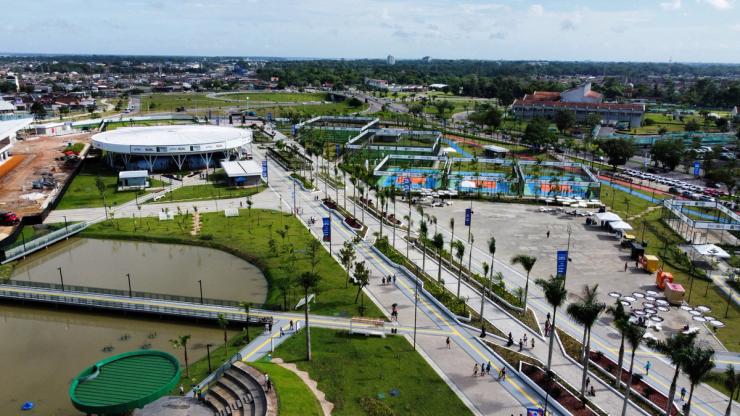The News
The COP30 climate summit planned for November in Brazil could be the smallest COP in years, with logistical headaches and the Trump administration’s withdrawal threatening to undermine the event’s credibility as a forum for meaningful climate diplomacy.
In a public letter on Tuesday, COP30 President André Aranha Correa do Lago, the top climate and energy official in Brazil’s Ministry of Foreign Affairs, sought to tamp down fears that soaring hotel prices and limited flight options in Belém, the midsized Amazonian city hosting the event, will keep attendees away. His main goal, he wrote, is to “put people at the center of COP30,” and hosting it in the Amazon “is about giving way to the vulnerable and to the peripheral as genuine leaders who take brave decisions every day.”
The question is who will be there to listen. The summit organizers said this week that they have no plans to relocate the event, even as numerous national delegations have urged them to consider an alternative. Already, some plan to slash their groups to the bare minimum, because of costs. Austria’s president said last week that he doesn’t expect to attend at all. Business groups are planning a separate event in São Paulo, and the meeting for heads of state that usually kicks off the event will be held the prior week in Rio de Janeiro instead. The Brazilian environmental group Observatório do Clima warned this week that without a better solution for accommodating NGOs and delegations from low-income countries, COP30 could be “the least inclusive in history.”
In this article:
Tim’s view
COP summits always face a tradeoff between practicality and accountability. Hosting every summit in a big European city would alleviate much of the pressure to re-invent the wheel every time with respect to hotels, transit, and other boring but essential logistical details. And it’s certainly true that after two grinding weeks of negotiations, little things like having a comfortable bed and decent meals — and no rivers of raw sewage to navigate — do make a difference. But the shifting locations are baked into the UN climate treaty for a reason; it’s a reminder of the global nature of the climate crisis, and forces government delegates to remain accountable to a diverse chorus of actors.
Still, at COP30, the choice of location risks undermining the event’s mandate. Every hour delegates spend negotiating the details of their access is time wasted making progress on the key substantive issues, which this year include pushing countries to ramp up their carbon reduction plans and raise more money for climate action in vulnerable low-income countries. Even if Brazil makes some provisions on hotel pricing to accommodate the most marginalized groups, it’s already clear that logistical difficulties are causing the summit to splinter into competing, isolated events. The presence of businesses, sub-national government leaders, and other adjacent participants has shown over time to be a critical source of pressure on the core negotiators, said Mariá Mendiluce, CEO of the We Mean Business Coalition, which organizes climate advocacy on behalf of the private sector. But this year, she said, many of those will either not attend or will choose to focus on side events in different cities.
Know More
The US will have a greatly diminished presence at this year’s summit regardless of location; the Trump administration finished firing all US climate negotiators last month and will complete its withdrawal from the Paris Agreement in January. That leaves an opening for other delegations to seize control of the conversation, said David Waskow, director of the World Resources Institute’s International Climate Initiative. China and the EU, in particular, have been vocal about their interest in keeping up momentum on global climate diplomacy.
“Other countries are ready to plow forward,” Waskow said. “They aren’t being held back in pursuing climate action just because of what’s happening with the US.”
Room for Disagreement
The most extreme logistical hurdles for Belém seem already to have been overcome. The government last week launched a hotel booking site that has plenty of normal-looking options available in the range of $200-400 per night (as well as some options that still reach into the tens of thousands of dollars for a two-week stay). André Guimarães, executive director of the environmental group IPAM Amazônia, said he hasn’t had any problems finding reasonable Airbnbs and rental apartments for friends and colleagues planning their trips. The housing crunch will work out in the end, said: “This is a non-issue. I think the energy of Brazilian hospitality will result in a very comfortable environment for people who come to visit.”
Notable
- The fact that COP30 will likely be “hot, humid, and uncomfortable” could actually help the negotiation process along, The Economist argues.


